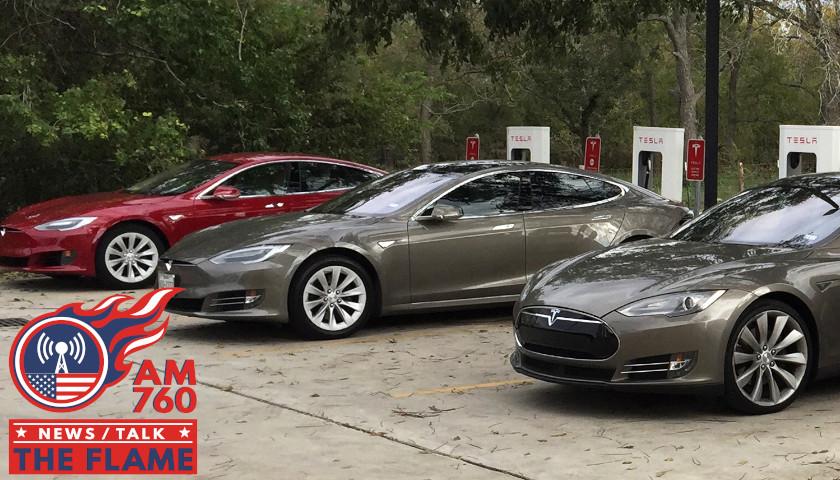All-star panelist Clint Brewer joined Tuesday’s edition of The Tennessee Star Report with Michael Patrick Leahy where he discussed the reasoning behind Tennessee Governor Bill Lee’s exclusion from a letter sent by Republican governors to President Joe Biden in regards to his administration’s electric vehicle (EVs) mandates.
On Monday, the Republican Governors Association – which Lee chairs – announced 16 Republican governors sent a letter to Biden urging him to “change course” on his “overreaching mandate” that says two out of every three vehicles must be battery-electric by 2032.
The governors requested the Biden administration instead provide a “more realistic approach by allowing the free market to determine the direction and timing for the industry’s growth rather than the federal government.”
The governors of Arkansas, Idaho, Iowa, Louisiana, Missouri, Montana, Nebraska, Nevada, New Hampshire, North Dakota, Oklahoma, South Dakota, Texas, Utah, Virginia, and Wyoming signed the letter.
Brewer argued Lee’s exclusion from the letter stems from the Volunteer State being home to major automobile manufacturers.
“Tennessee’s economy is very, very wrapped up in the automotive industry,” Brewer explained. “You’ve got three major OEM auto manufacturers here… In addition to that, you’ve got over 900 auto supply companies that do business here. One of them is actually a Japanese company that, from a job standpoint, might be as large as the three OEMs. And, you know, the state’s heavily invested in being the new Detroit and it has been since the 1980s.”
Brewer added that Lee’s decision not to sign the letter was grounded in not jeopardizing the state’s “economic future from that of the automotive industry.”
“Tennessee, with three OEMs online and a fourth on the way, is now and has been heavily invested in the automotive manufacturing sector for the better part of the last, what would it be now, 40 years? So economically, there’s no way to, you know, uncouple, decouple the state’s economic future from that of the automotive industry,” Brewer said. “And so, you know, whether you like it or not, almost every automotive manufacturer out there that I know of, has chosen to place their bets on electric vehicles.”
Despite Leahy pointing out that his defense of Lee was a “corporatist argument,” Brewer continued by saying Lee’s decision was him “siding with people who make their money working for the automotive sector.”
“It’s Tennesseans’ jobs. I mean, it’s hundreds of thousands of people that are employed by the sector in the state. He’s siding with Tennesseans. I mean, he’s siding with people who make their money working for the automotive sector,” Brewer said.
Leahy countered Brewer’s argument in regards to Lee standing up for the jobs of Tennesseans, saying, “He’s not…Because they are losing money on electric vehicles because people don’t want them. And so, they’re being forced to invest – and in this case, our taxpayer dollars – but they’re forced to invest their money into products that nobody wants or that are far below the demand, far below what the government wants it to be.”
Brewer went on to admit that while Lee “could be part of a very positive dialogue about electric vehicles in this country,” current models “cost too much for the American family,” and the “charging infrastructure is not there.”
“Let’s be honest – I mean, right now, the problem is…they cost too much for the American family. The models that are made right now don’t accommodate the American family,” Brewer said.
– – –
Kaitlin Housler is a reporter at The Tennessee Star and The Star News Network. Follow Kaitlin on X / Twitter.
Photo “Electric Vehicles Charging” by Mariordo. CC BY-SA 4.0.





I don’t think so – More than 1 manufacturer is rethinking the EV push because it is losing them money and some are cutting production in that area. There is nothing wrong with slowing down this push that has been too much too soon and is backfiring, in fact the manufacturers might welcome the breathing room. I don’t trust Lee on this one